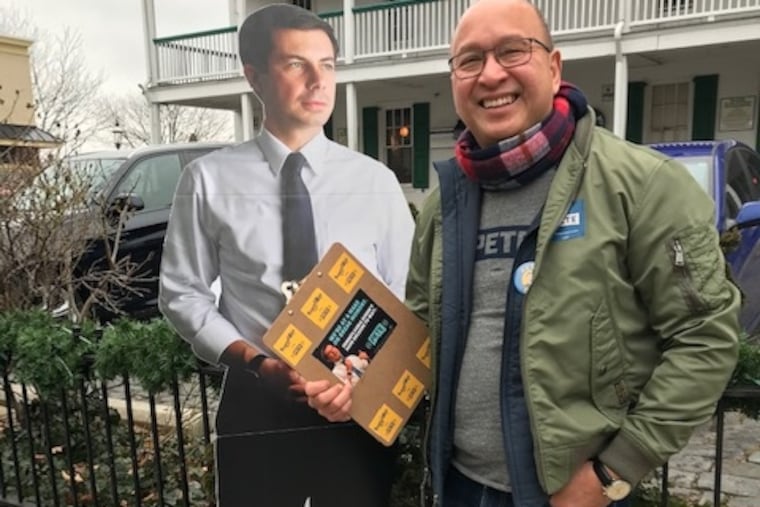I was a delegate for Pete Buttigieg — until he dropped out. Now what? | Opinion
Pledged delegates are elected with the understanding that they will support a particular candidate at the convention.

Last week saw the suspension of several campaigns for the Democratic presidential nomination including those of Pete Buttigieg, Amy Klobuchar, Michael Bloomberg, and Elizabeth Warren. What many may not realize is that there are scores of delegate candidates who pledged support to each of these hopefuls who went through the trouble of collecting 250 signatures in order to get onto the ballot for the April 28 Pennsylvania primary. With each exit, dozens of dreams to witness political history firsthand were dashed as they are no longer viable to represent their home districts at this year’s Democratic National Convention in Milwaukee.
I was one of them, pledging support for Pete Buttigieg in PA-1 (Bucks/Montgomery). I was selected by the Pete for America campaign late last year as regional organizers took notice of my active grassroots support, which among many activities, included organizing a fundraiser featuring Pete’s campaign manager. It was a joy to work with other Pete delegate wannabes as we showed up at the same signing parties and could even track our progress against one another and others across the state during the petition signature collecting period. I even made new friends.
But with Pete now out of the race, all those pledged to Pete (and Amy, Mike, and Liz) are no longer in contention. While the sting is still raw, I do not regret participating and learned from this political process which at times I found confusing.
Pledged delegates are elected with the understanding that they will support a particular candidate at the convention. Candidates start collecting delegates based on how well they perform once they surpass the 15% of vote threshold. The number of delegates representing each of Pennsylvania’s 18 congressional districts are apportioned by the Pennsylvania Democratic Party and based on census data (PA-1 accounts for eight delegates). Come July, the state will send 153 pledged delegates who are then joined by 23 unpledged delegates including 12 members of the Democratic National Committee; 10 members of Congress, including one senator and nine U.S. representatives; and the governor.
Recent conventions have been pro forma as there has been a presumptive nominee going into the convention. Where it gets interesting is when a candidate does not have the 1,991 delegates out of a total of 3,979 to win the nomination outright, which then results in a contested convention further complicated by superdelegates, who would vote in a second ballot.
It is critical to remain engaged. A chunk of the U.S. population did not vote in 2016. The future of our democracy relies on fuller participation by its citizens. There are many ways to help register voters and to get out the vote starting with nonprofit organizations like the League of Women voters as well as through one’s own state party — whether it be Democratic or Republican.
As for me, I will do my part to support down ballot candidates as well as the eventual nominee. It will be bittersweet to still see my name on the primary ballot. Any votes I receive will be symbolic. It’s the Joe Biden and Bernie Sanders delegates who will duke it out. But given the chance to support a future presidential hopeful that I can fully believe in, I’d do it all over again.
Jobert E. Abueva is a resident of New Hope.